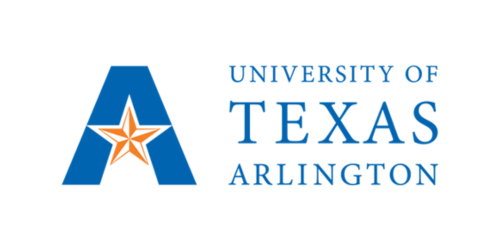

Overseas Education
Explore Global Education Opportunities
Your journey to world-class education starts here. Discover why thousands of Indian students choose to study in Canada, Australia, the UK, and Europe every year. From top universities to career pathways and lifestyle benefits — we’ve got it all covered.
Our University Tie-Ups
We represent 69 of World’s Top 300 Universities according to QS World Rankings 2025











Study in United Kingdom
World-Renowned Education | Global Career Opportunities
Why Study in United Kingdom?
The United Kingdom remains one of the top destinations for Indian students who aspire to receive a world-class education, experience multicultural student life, and access vast career opportunities across the globe. With centuries of academic heritage, global recognition, and practical-focused learning, the UK offers the perfect balance of excellence and employability.
Benefits of Studying in the UK
- The UK is home to many of the world’s highest-ranked universities like Oxford, Cambridge, Imperial College London, and University College London.
- British degrees are recognized globally and highly valued by employers worldwide.
- Most Bachelor’s degrees take only 3 years to complete, and Master’s programs are just 1 year, helping save both time and cost.
- Students get a 2-year post-study work visa (Graduate Route) after completing undergraduate or postgraduate studies, and 3 years after a PhD.
- The UK is culturally diverse and has a welcoming Indian community in cities like London, Birmingham, Manchester, and Edinburgh.
- The country offers excellent student discounts, affordable accommodation options, and strong public transport networks.
- Studying in the UK provides easy access to Europe, boosting travel, exposure, and networking opportunities.
- UK universities emphasize practical training, internships, and employability, which helps build real-world skills.
- Many universities offer internship-based or placement-integrated programs, especially in business, IT, and engineering.
Top 6 UK Universities
University of Oxford
- Ranked #1 globally strong in humanities, science, and law renowned for academic research.
Imperial College London
- Focuses on STEM courses; ideal for students interested in science, technology, medicine, and engineering.
University of Edinburgh
- Scotland’s top university; great for biomedical science, data science, and public policy.
University of Cambridge
- Known for excellence in engineering, economics, and mathematics; famous for its Nobel laureates and scientific breakthroughs.
University College London (UCL)
- Offers a wide variety of programs from psychology to architecture; top choice for research-based learning.
University of Manchester
- Strong in business, IT, engineering, and health sciences; well-connected to industry for placements.
Popular Courses to Study in United Kingdom
Business & Management
- MBA, Finance, Marketing, HR, and International Business are highly preferred due to global career scope.
Computer Science & IT
- Courses in Artificial Intelligence, Cybersecurity, Cloud Computing, and Data Science are in great demand.
Engineering
- Civil, Mechanical, Electrical, Robotics, and Renewable Energy engineering programs are popular for their innovation focus
Health & Life Sciences
- Programs like Public Health, Pharmacy, Biomedical Sciences, and Nursing are ideal for careers in the NHS or private hospitals.
Law & International Relations
- UK law degrees are highly respected and offer options to work in Commonwealth countries and international organizations.
Design, Media & Arts
- Students opt for Fashion Design, Animation, Film Production, and Game Development, especially in creative hubs like London and Glasgow.
Levels of Study & Duration
Undergraduate Programs (Bachelor’s Degree)
- Duration: 3 to 4 years (Honours available)
- Entry after Class 12 with minimum academic percentage and English test
- IELTS requirement: 6.0 overall (no band less than 5.5)
Postgraduate Programs (Master’s Degree / PG Diploma)
- Duration: 1 to 2 years
- Includes coursework and research options
- IELTS requirement: 6.5 overall (no band less than 6.0)
Doctoral Programs (PhD)
- Duration: 3 to 4 years
- Many are fully funded through stipends and assistantships
- Requires a strong academic background and research proposal
Cost of Living in United Kingdom
- Undergraduate tuition fees range between £10,000 to £20,000 per year, depending on the university and course.
- Postgraduate fees range between £12,000 to £25,000, with MBA programs sometimes going up to £40,000.
- Doctoral programs (PhD) may be self-funded or fully funded through scholarships.
- Living expenses in the UK vary by city, but students usually spend around £800 to £1,200 per month on rent, food, transport, and personal expenses.
Scholarships & Financial Aid
Chevening Scholarships
- UK government’s flagship fully-funded scholarship for future leaders and influencers.
Commonwealth Scholarships
Funded by the UK government for students from Commonwealth countries, including India
GREAT Scholarships
- Offers up to £10,000 in tuition support for select Master’s programs at participating universities.
University-Specific Scholarships
- Clarendon Scholarship (Oxford)
- Gates Cambridge Scholarship
- Think Big Scholarships (University of Bristol)
- Global Excellence Scholarships (University of Exeter)
UK Student Visa Process
- Apply for your visa once you receive a Confirmation of Acceptance for Studies (CAS) from your university.
- Show proof of funds to cover tuition fees and 9 months of living expenses.
- Submit English proficiency test scores such as IELTS, TOEFL, PTE, or Duolingo (accepted by some universities).
- Pay the Immigration Health Surcharge (IHS) to access the UK’s National Health Service (NHS) during your stay.
- Visa typically allows part-time work of up to 20 hours per week during term time and full-time during holidays
Post-Study Work Opportunities
- students can work part-time during studies and gain internships through university career services.
- After completing their course, students can apply for the Graduate Route Visa, which allows them to work in the UK for up to 2 years (3 years for PhD graduates) without sponsorship.
- This post-study work experience is valuable for long-term settlement or global career growth.
- Students can later transition to a Skilled Worker Visa if they get a job offer from a licensed UK employer, eventually leading to Permanent Residency (Indefinite Leave to Remain) after 5 years.
- Talented graduates may also be eligible for the Global Talent Visa or Innovator Visa to establish startups or research careers in the UK.
Language Requirements
IELTS Academic
- UG: 6.0 – 6.5
- PG: 6.5 – 7.5
TOEFL iBT
- UG: 79 – 95
- PG: 90 – 110
PTE Academic
- UG: 50 – 58
- PG: 58 – 65
Duolingo (DET)
- Accepted by many universities
- Score: 105 – 125

Study in Australia
Globally Ranked Universities | Industry-Focused Degrees | High Employability
Why Study in Australia?
Australia is one of the most sought-after destinations for Indian students seeking international-quality education, hands-on work experience, and clear pathways to permanent residency. The country offers a dynamic mix of globally recognized universities, career-focused courses, and a lifestyle that’s both exciting and secure.
Globally Ranked Universities
- Many Australian universities consistently feature in the QS and Times Higher Education global rankings.
Post-Study Work Rights & Clear PR Pathways
- The Temporary Graduate Visa allows students to gain local work experience, which adds points to PR applications.
Multicultural Society & Safe Environment
- Australia is known for its welcoming communities, cultural diversity, and a safe, student-friendly lifestyle.
Proximity to India & Welcoming Immigration Policies
Just 11 hours by flight, with easier visa rules and multiple Indian communities across cities.
Globally Recognized Universities & Education System
Australia’s higher education is governed by TEQSA, ensuring consistent quality across institutions. Programs are aligned with industry requirements and encourage real-world applications.
Top 6 Universities in Australia
University of Melbourne
- Ranked #1 in Australia
- Strengths: Medicine, Law, Business, Engineering
- Top graduate employability and global alumni network
Australian National University (ANU)
- Located in Canberra
- Renowned for: Politics, Economics, Research
- Scholarships: ANU Chancellor’s International Scholarship
University of Sydney
- Located in Montreal, a student-friendly city
- Known for medical, law, and liberal arts programs
- Offers strong support for international students
University of Queensland (UQ)
- Known for: Biotechnology, Psychology, Marine Science
- Strong industry ties and entrepreneurship focus
Monash University
- Global presence: Malaysia, India, Italy campuses
- Top-ranked for Pharmacy, Engineering, Data Science
- Strong R&D with global impact
University of New South Wales (UNSW Sydney)
- Expertise in: Business, Engineering, Innovation
- Partnered with industry leaders and global accelerators
Popular Courses to Study in Australia
Information Technology & Computer Science
- Fields: AI, Cybersecurity, Cloud Engineering
- Career scope in tech giants like Atlassian, Canva, AWS
Business & Management
- Degrees: MBA, Finance, Marketing, HR
- Co-op and corporate tie-ups with MNCs
Engineering
- Branches: Civil, Mechanical, Electrical, Mechatronics
- Accredited by Engineers Australia
Hospitality & Tourism Management
- Degrees: Hotel Management, Events, Tourism
- Internships with Hilton, Marriott, Accor
Environmental Science & Sustainability
- Areas: Marine Biology, Urban Planning
- High employability in NGOs, research, and government
Health Sciences
- Courses: Nursing, Public Health, Pharmacy
- In-demand with good PR prospects
Levels of Study & Duration
Undergraduate Programs (Bachelor’s Degree)
- Duration: 3 to 4 years (Honours available)
- Entry after Class 12 with minimum academic percentage and English test
- IELTS requirement: 6.0 overall (no band less than 5.5)
Postgraduate Programs (Master’s Degree / PG Diploma)
- Duration: 1 to 2 years
- Includes coursework and research options
- IELTS requirement: 6.5 overall (no band less than 6.0)
Doctoral Programs (PhD)
- Duration: 3 to 4 years
- Many are fully funded through stipends and assistantships
- Requires a strong academic background and research proposal
Cost of Living in Australia
Tuition Fees (Annually)
- UG: AUD 20,000 – 40,000
- PG: AUD 22,000 – 50,000
- PhD: Often covered by RTP or university funding
Cost of Living (Monthly Estimate)
- Rent (Shared): AUD 500 – 900
- Food: AUD 300 – 500
- Transport: AUD 100 – 150
- Miscellaneous: AUD 100 – 200
Total: AUD 1,000 – 1,500/month
Scholarships & Financial Aid
Australia Awards Scholarships
Government-funded, covers tuition, travel, and living costs for high-achieving students.
Destination Australia Scholarships
Up to AUD 15,000 annually for those studying in regional areas.
Research Training Program (RTP)
Covers tuition + stipend for postgraduate researchers.
University-Specific Scholarships
- Melbourne International Undergraduate Scholarship
- ANU Chancellor’s International Scholarship
- UNSW Future of Change Scholarship for Indian Students
Visa Process & Work Rights
Visa Categories
Valid for course duration + extra stay period
- Multiple entry allowed
- Work rights included
Work While You Study
- Part-time: Up to 48 hours/fortnight during semesters
- Full-time: During holidays
- On-campus work also permitted
Requirements
- Confirmation of Enrolment (COE) from a CRICOS-registered institution
- IELTS 6.0+
- Financial proof (~AUD 24,500 for living)
- OSHC (Overseas Student Health Cover)
Post-Study Work & PR PathwaysPost-Study Work & PR Pathways
Temporary Graduate Visa (Subclass 485)
- Duration: 2 to 4 years (based on qualification level and location)
- Employer-independent work rights
PGWP – Post Graduation Work Permit
- Skilled Migration (Subclass 189/190)
- Regional PR (Subclass 491)
- State Nomination
Language Requirements
IELTS Academic
- UG: 6.0 – 6.5
- PG: 6.5 – 7.5
TOEFL iBT
- UG: 79 – 95
- PG: 90 – 110
PTE Academic
- UG: 50 – 58
- PG: 58 – 65
Duolingo (DET)
- Accepted by many universities
- Score: 105 – 125

Study in Europe
Academic Diversity | Cultural Richness | Schengen Advantage
Why Choose Europe for Higher Education?
Europe is a vibrant education destination with centuries-old universities, globally recognized programs, affordable tuition, and a wide variety of cultures and languages. It’s home to many of the world’s oldest and most prestigious academic institutions and offers unmatched travel and career opportunities.
Access to World-Class Universities Across Multiple Countries
- Europe is home to over 4,000 higher education institutions across 40+ countries, including globally top-ranked universities in the UK, Germany, France, Netherlands, Sweden, and Switzerland.
Affordable Education and Low Tuition Fees
Many European countries offer tuition-free or very low-cost education for international students.
For example, Germany and Norway offer free education at public universities—even for non-EU students.
Globally Recognized Degrees with Employment Value
- Degrees from European universities are respected worldwide.
Employers value European graduates for their academic rigour and multicultural competence.
Scholarships and Financial Aid for Indian Students
- Numerous fully and partially funded scholarships are available—like Erasmus+, DAAD (Germany), Eiffel (France), and Holland Scholarships.
Diverse Course Options and Teaching Styles
- Whether you’re looking for Engineering, Arts, Fashion, Sciences, Medicine, or Business, Europe offers it all.
Easy Travel Within the Schengen Zone
- A student visa from one Schengen country allows you to travel freely across 27 European nations.
This gives unmatched exposure to different languages, histories, and cultures during your study.
Top Study Destinations in Europe
Germany
- Tuition-free education at public universities
- Strong focus on Engineering, IT, and Sciences
- DAAD scholarships widely available
- Excellent job opportunities for STEM graduates
France
- Known for Arts, Fashion, Culinary Arts, Business, and Engineering
- Reasonable tuition fees and living costs
- Eiffel Excellence Scholarships available
- High quality of life in cities like Paris, Lyon, and Bordeaux
Netherlands
- Over 2,100 courses taught in English
- Renowned for Business, Environmental Studies, and Technology
- Innovative teaching and global rankings
- Holland Scholarship supports international students
Sweden
- Focus on sustainability, technology, and innovation
- No tuition fees for EU, but scholarships for non-EU students
- English is widely spoken
- Strong startup and tech ecosystem
Italy
- Known for Architecture, Design, Art, Fashion, and Engineering
- Affordable tuition and low cost of living
- Government scholarships available
- Rich cultural and historical experience
Finland
- Known for high-quality education and student-centric systems
- Strong in Education, Technology, and Environmental Sciences
- Some universities offer scholarships covering 50–100% tuition fees
Popular Courses to Study in Europe
Business & Management
- Courses: MBA, Finance, HR, Supply Chain, International Business
Top Institutions: INSEAD (France), Rotterdam School of Management (Netherlands), SDA Bocconi (Italy)
Computer Science & IT
- Courses in Artificial Intelligence, Cybersecurity, Cloud Computing, and Data Science are in great demand.
Engineering
- Branches: Mechanical, Civil, Electrical, Automotive, Aerospace, Renewable Energy
Leading Countries: Germany, Finland, France
Health & Life Sciences
- Programs: Medicine (English-taught MD programs), Public Health, Pharmacy
Available in countries like Hungary, Poland, Czech Republic at lower tuition than UK/USA
Sustainability & Environmental Sciences
- Focus on climate change, green tech, and resource management
Popular in Sweden, Netherlands, Germany
Design, Media & Arts
- Specialties: Fashion Design, Graphic Design, Interior Architecture
Top Countries: Italy, France, Netherlands
Levels of Study & Duration
Undergraduate Programs (Bachelor’s Degree)
Duration: 3–4 years
Medium of Instruction: English or local language
IELTS: 6.0 – 6.5 required for English-taught courses
Postgraduate Programs (Master’s Degree / PG Diploma)
Duration: 1–2 years
Highly specialized with internship/research options
IELTS: 6.5 – 7.5 or equivalent
Doctoral Programs (PhD)
Duration: 3–5 years
Strong focus on innovation and industry collaboration
Many PhD programs offer full scholarships and stipends
Cost of Living in Europe
Tuition Fees (Annually)
- Germany: Free to €3,000/year
- France: €2,770 (UG), €3,770 (PG)
- Netherlands: €6,000 – €20,000
- Italy: €1,000 – €4,000
- Sweden: €8,000 – €15,000
Living Costs (Monthly Estimate)
- Rent: €300 – €800 (shared), €800 – €1,200 (private)
- Food & Utilities: €200 – €300
- Transport: €40 – €100
- Miscellaneous: €100 – €200
Average Living Cost: €700 – €1,200/month depending on country and city
Scholarships & Financial Aid
Erasmus+
- EU-funded scholarship for Master’s programs across multiple countries
- Covers tuition, travel, and living expenses
DAAD (Germany)
- Supports UG, PG, and PhD students
- Offers monthly stipend, travel grants, and health insurance
Eiffel Excellence Scholarship (France)
- Offered by the French government for PG students
- Monthly allowance, travel, health cover
Holland Scholarship
- Offered by Dutch universities to non-EU students
- One-time grant of €5,000
Europe Student Visa Process
Student Visa (Long Stay – Type D Visa)
Issued by the specific country (e.g., Germany Study Visa, France VLS-TS) General Requirements:
- Offer letter from university
- Proof of funds (blocked account or bank statement)
- Valid passport
- Language proficiency (IELTS, TOEFL, or other tests)
- Medical/travel insurance
Work While You Study
- Allowed in most countries (10–20 hours/week)
- Some require a separate permit (like France)
Post-Study Work & PR Opportunities
Germany – 18-month job seeker visa after graduation
Netherlands – 1-year Orientation Visa for job search
France – 1-year temporary residence for Master’s graduates
Sweden – 12-month job search visa after graduation
Language Requirements
IELTS Academic
- UG: 6.0 – 6.5
- PG: 6.5 – 7.5
TOEFL iBT
- UG: 79 – 95
- PG: 90 – 110
Duolingo (DET)
- Accepted by many universities
- Score: 105 – 120

Study in Canada
World-Class Degrees | PR Pathways | Multicultural Experience
Canada is known for its globally ranked institutions, research opportunities, and high quality of life making it a top choice for Indian students.
Why Choose Canada for Higher Education?
Canada is increasingly becoming the top destination for international students especially from India due to its exceptional education system, affordable tuition compared to other Western countries, welcoming immigration policies, and safe multicultural environment. Here’s why thousands of students choose Canada every year:
Globally Recognized Education System
- Canadian degrees, diplomas, and certificates are recognized worldwide for their quality and academic excellence.
- The country’s education system consistently ranks among the top 10 globally by various education quality indices.
Top-Ranked Universities & Research Opportunities
- Canada is home to several world-leading universities like the University of Toronto and McGill, with cutting-edge research labs and facilities.
- PhD and Master’s students benefit from research grants, internships, and collaboration with global academic institutions.
Safe and Inclusive Environment
- Canada is known for its low crime rate, making it one of the safest countries in the world for students.
- Multiculturalism is enshrined in Canadian values. Whether you’re from Delhi or Durban, you’ll find vibrant communities and social support.
Affordable and High Quality of Life
- Although cities like Toronto and Vancouver can be expensive, most Canadian cities offer a high standard of living at a manageable cost.
- Access to universal healthcare, clean environments, and well-maintained infrastructure ensures a comfortable life during studies.
Top 6 Universities in Canada
University of Toronto
- Canada’s #1 ranked university
- Strong in engineering, computer science, business, and life sciences
- Over 20% of its student population is international
University of British Columbia (UBC)
- World leader in sustainability and environmental sciences
- Offers excellent co-op and research programs
- Stunning campuses in Vancouver and Okanagan
McGill University
- Located in Montreal, a student-friendly city
- Known for medical, law, and liberal arts programs
- Offers strong support for international students
University of Alberta
- High employability rates for graduates
- Excellent programs in petroleum engineering, agriculture, and biotechnology
- Located in Edmonton with lower cost of living
University of Waterloo
- Globally recognized for its co-op (paid internship) programs
- Strong emphasis on STEM and innovation
- Produces the highest number of tech start-ups in Canada
University of Western Ontario
- Highly respected for programs in business law, health sciences, and media studies
- Strong campus community and student experience.
- Great opportunities for research funding and study abroad exchanges
Popular Courses to Study in Canada
Computer Science & IT
- Courses: Software Engineering, Cybersecurity, Data Science, AI, Cloud Computing
- Job Outlook: Extremely strong; high demand in cities like Toronto and Ottawa
Business & Management
- Courses: MBA, Finance, International Business, HR, Marketing
- Co-op programs provide real-world experience with top Canadian firms
Engineering
- Branches: Mechanical, Electrical, Civil, Computer, Mechatronics
- Accreditation: Most programs are accredited by Engineers Canada
- Opportunities: High demand across construction, IT, and manufacturing
Hospitality & Tourism Management
- Courses cover Hotel Management, Tourism Marketing, Event Planning, and Culinary Arts
- Canada’s vibrant tourism industry generates millions of jobs
- Opportunities for internships and placements at luxury hotel chains like Fairmont, Marriott, and Hilton
Environmental & Earth Sciences
- Focus on sustainability, resource management, and climate change
- Opportunities with government and international NGOs
Health Sciences
- Programs: Public Health, Pharmacy, Nursing, Biomedical Sciences
- Eligibility: Some require prior work or clinical experience
- Pathway to permanent residency through healthcare-related jobs
Levels of Study & Duration
Undergraduate Programs (Bachelor’s Degree)
- Duration: 3 to 4 years
- Entry after Class 12 (Science, Commerce, or Arts streams)
- Minimum IELTS: 6.0 – 6.5
- Includes Honours and Co-op options
Postgraduate Programs (Master’s Degree / PG Diploma)
- Duration: 1 to 2 years
- Entry after completion of a Bachelor’s degree
- IELTS: 6.5 – 7.5 (some courses require higher band in Writing)
- Co-op and internship availability enhances employability
Doctoral Programs (PhD)
- Duration: 3 to 5 years
- Strong emphasis on independent research
- Funding: Many programs are fully funded through scholarships, fellowships, and teaching assistantships
- IELTS/TOEFL scores required along with a strong research proposal
Cost of Studying & Living in Canada
Tuition Fees (Annually)
- Undergraduate: CAD 15,000 – 25,000
- Postgraduate/Masters: CAD 18,000 – 30,000
- PhD: CAD 6,000 – 15,000 (often covered by funding)
Cost of Living (Monthly Estimate)
- Rent: CAD 400 – 800 (shared), CAD 900 – 1,500 (single)
- Food & Groceries: CAD 200 – 300
- Transport: CAD 80 – 120 (many cities offer student discounts)
- Miscellaneous: CAD 100 – 150
Total Living Cost: CAD 800 – 1,200/month depending on location and lifestyle
Scholarships & Financial Aid
Vanier Canada Graduate Scholarship
- For doctoral students
- Worth CAD 50,000/year for 3 years
Canada-India Research Centre of Excellence (IC-IMPACTS)
- Offers joint research fellowships and grants
- Primarily for STEM and social development fields
Trudeau Foundation Scholarships
- For outstanding PhD students
- Includes mentorship, networking, and leadership development
University-Specific Scholarships
- Example: UBC International Major Entrance Scholarship (IMES), U of T’s Lester B. Pearson International Scholarship
- Covers tuition, books, and living costs
Visa Process & Work Rights
Visa Categories
- Student Visa (Study Permit): Required for programs longer than 6 months
- SDS Stream (Student Direct Stream): Fast-track for Indian students
Work While You Study
- Part-time: Up to 20 hours/week during semesters
- Full-time: During scheduled breaks
- On-campus jobs also available
SDS Requirements
- IELTS 6.0 or higher in each band
- Payment of 1st year’s tuition in advance
- Purchase of Guaranteed Investment Certificate (GIC) of CAD 10,000
- Visa decision in 2 to 6 weeks
Post-Study Work Permit (PGWP) & PR Options
Permanent Residency (PR) Options
- Express Entry (Federal Skilled Worker Program)
- Points-based system (CRS Score)
- Higher points for Canadian education and work experience
- Provincial Nominee Program (PNP)
- Each province has its own stream for graduates
- Direct path to PR for those studying and working in a specific province
PGWP – Post Graduation Work Permit
- Valid for up to 3 years based on course duration
- Allows graduates to gain Canadian work experience
- PGWP is open and employer-independent
Language Requirements
IELTS Academic
- UG: Minimum 6.0 – 6.5
- PG: 6.5 – 7.5
TOEFL iBT
- UG: 80 – 100
- PG: 90 – 110
Duolingo English Test (DET)
- Accepted by many colleges (score: 105 – 125)
- Useful in remote or urgent scenarios

Study in Japan
Overview of the Japanese Education System
Why Choose Japan for Higher Education?
Japan has over 700 universities, with 10+ appearing in the QS World University Rankings. The system emphasizes research, precision, and practical training. Academic calendars usually start in April, although many English programs offer a September intake.
Entry Requirements:
- Completed 12 years of schooling (for undergrad) or a bachelor’s degree (for PG)
- Proof of English proficiency (TOEFL/IELTS) or Japanese (JLPT N2/N1 depending on the
program) - Statement of Purpose (SOP)
- Letters of Recommendation
- Admission letter from the host university
- Certificate of Eligibility (COE) – issued before visa processing
- Financial proof showing ability to fund tuition + living (bank balance, sponsor letter)
Top Universities in Japan
University of Tokyo
Kyoto University
Tokyo Institute of Technology
Osaka University
Waseda University (Private)
Popular Courses to Study in Japan
Robotics, Mechatronics, & AI
Environmental Engineering & Renewable Energy
Biotechnology & Applied Sciences
Business Management & International Relations
Japanese Language & Cultural Studies
Architecture & Urban Planning
Cost of Studying & Living in Japan
Bachelor’s Degree
- ¥500,000–¥800,000/year (₹2.7L–₹4.4L) | Duration: 4 years
Master’s Degree
- ¥550,000–¥1,000,000/year (₹3L–₹5.5L) | Duration: 2 years
Living Expenses
- ¥80,000–¥120,000/month depending on city
Scholarships & Financial Aid
MEXT (Monbukagakusho)
- Full tuition, stipend, and airfare
JASSO (Japan Student Services Organization)
- Monthly stipend
Asian Development Bank – Japan Scholarship
- for master’s programs
University-specific funding
- Waseda, Ritsumeikan, Sophia, etc
Post-Study Work Permit (PGWP) & PR Options
- Apply for a Designated Activities Visa to seek work after graduation
- Eligible to convert to Engineer/Specialist in Humanities visa upon employment
- Students with JLPT N2/N1 certification have wider job options
- Japan’s “Highly Skilled Foreign Professional” point-based system eases PR eligibility

Study in South Korea
Overview of the Korean Education System
Why Choose South Korea for Higher Education?
South Korea hosts over 400 universities and is globally known for innovation, especially in electronics, biotech, and communication. Most academic years start in March, but many programs also offer September intake for international students.
Entry Requirements:
● High school diploma or equivalent (for undergraduate), bachelor’s degree (for
postgraduate)
● TOPIK score (Test of Proficiency in Korean) or IELTS/TOEFL
● Admission confirmation from Korean university
● Proof of finances: typically a minimum of USD 10,000 in a bank account
● Health certificate, passport-size photos, and visa application form
Top Universities in South Korea
Seoul National University (SNU)
Korea Advanced Institute of Science and Technology (KAIST)
Yonsei University
Pohang University of Science and Technology (POSTECH)
Korea University
Popular Courses to Study in South Korea
Computer Science & Data Engineering
International Business & Economics
Biotechnology & Biomedical Engineering
Media Studies & Mass Communication
Korean Language & Cultural Studies
Game Design, Animation & UX/UI
Cost of Studying & Living in South Korea
Bachelor’s Degree
- ₩4M–₩7M/year (₹2.5L–₹4.5L) | Duration: 4 years
Master’s Degree
- ₩5M–₩8M/year (₹3L–₹5.5L) | Duration: 2 years
Living Expenses
- ₩700K–₩1.2M/month (₹45K–₹80K/month), Seoul being higher
Scholarships & Financial Aid
Global Korea Scholarship (GKS)
- Full tuition, living expenses, airfare
University-level scholarships
- Merit-based or Need-based
Industry-linked fellowships
- Tech, IT, and Design fields
Korean Government Research Grants
- STEM PG students
Post-Study Work Permit (PGWP) & PR Options
● D-10 Job-Seeker Visa for up to 6–12 months post-graduation
● Conversion to E-7 (Specialty Occupation) Visa upon job offer
● Priority sectors: IT, AI, Education, Translation, Healthcare
● Pathway to Permanent Residency (F-2 visa) for long-term stay

Study in Vietnam
An Emerging Destination for Affordable, Quality Education in Southeast Asia
Vietnam is rapidly gaining attention among international students for its affordable education, growing English-taught programs, and developing economy with global investment links. With modern campuses, diverse cultural experiences, and a warm, welcoming environment,
Vietnam is an excellent option for Indian students seeking a budget-friendly yet enriching study abroad experience.
Whether you’re interested in business, tech, hospitality, or environmental sciences, Vietnam offers globally relevant programs at a fraction of the cost of Western countries.
Why Choose Vietnam for Higher Education?
● Affordable tuition fees and cost of living
● Increasing number of English-medium programs at top public and private universities
● High demand for international graduates in Vietnam’s growing economy
● Opportunity to learn Vietnamese and access Southeast Asian job markets
● Cultural richness and lifestyle comparable to Thailand or Malaysia, but less
commercialized
● Government partnerships with universities in France, the US, South Korea, and Australia
Entry Requirements:
Undergraduate (Bachelor’s):
● Completion of 12 years of schooling
● Proof of English proficiency (IELTS 5.5+ or TOEFL equivalent)
● Statement of Purpose
● Passport copy and academic transcripts
● Admission offer letter from the university
● Health insurance and proof of funds (~USD 3,000–5,000)
Postgraduate (Master’s):
● A recognized bachelor’s degree
● IELTS 6.0+ or TOEFL/other English proficiency proof
● Letters of Recommendation and SOP
● Interview in some cases
● Valid passport and visa application documents
Popular Courses to Study in Vietnam
Business Administration & International Trade
Computer Science & Information Technology
Environmental Science & Renewable Energy
Tourism, Hospitality & Hotel Management
Engineering (Mechanical, Civil, Electrical)
Public Health & Development Studies
Cost of Studying & Living in Vietnam
Bachelor’s Degree
● Public Universities: USD 1,200–2,500/year (₹1L–₹2L approx.)
● Private or International Partnerships: USD 2,500–5,000/year
Master’s Degree
- USD 1,500–3,000/year (₹1.25L–₹2.5L approx.)
Living Expenses
● Approximately USD 300–500/month (₹25K–₹42K), including accommodation, food, and
transport
● Ho Chi Minh City and Hanoi are slightly costlier than Da Nang or Can Tho
Scholarships & Financial Aid
● Vietnamese Government Scholarships (for students from developing countries including India)
● ASEAN Scholarships – regional funding for students from Southeast Asia and beyond
● University-specific merit scholarships (e.g., Vietnam National University, FPT (University)
● Exchange program scholarships in collaboration with European and East Asian universities.
Post-Study Work Permit (PGWP) & PR Options
● While Vietnam does not have a formal post-study work visa scheme, many international students find opportunities through:
○ Local hiring in multinational companies (tech, finance, logistics, hospitality)
○ Internships and apprenticeships during or after the program
○ Pathways to permanent residency through employer sponsorship or entrepreneurial ventures
● Knowledge of basic Vietnamese is a major advantage for long-term work or settlement



